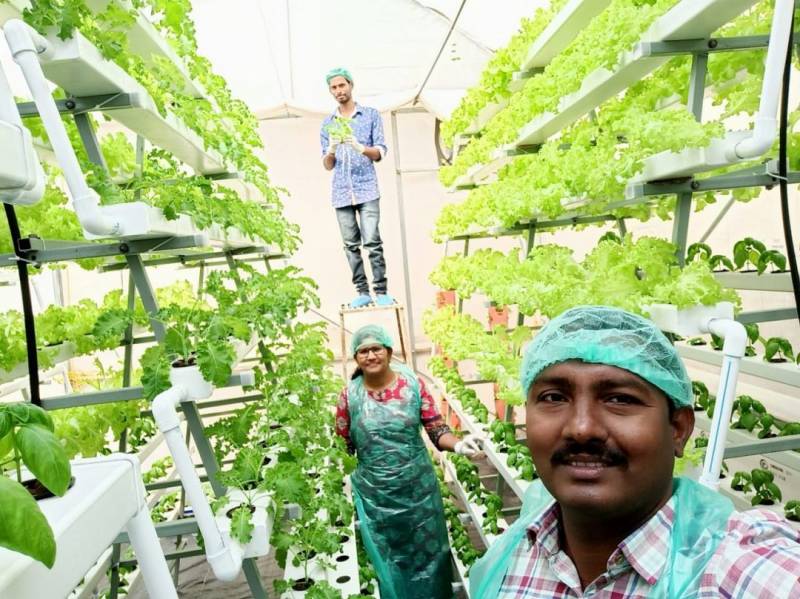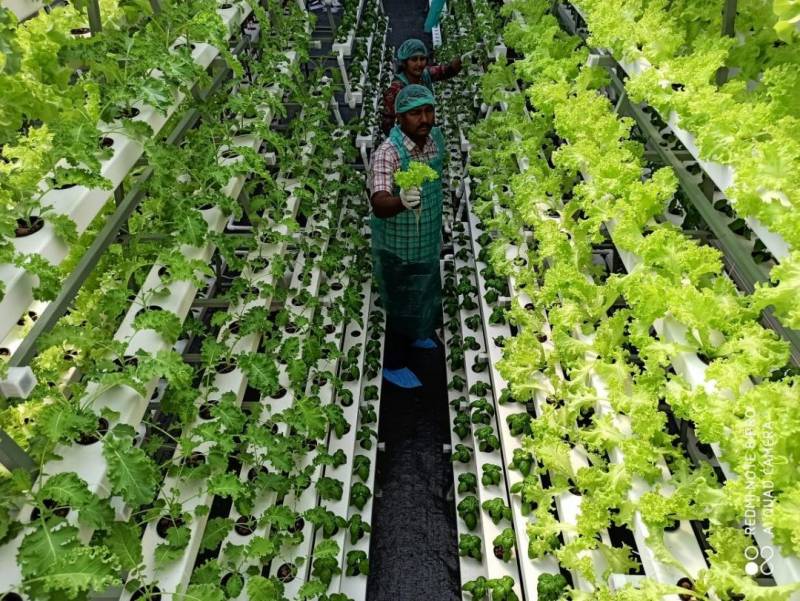'Hydroponics future of agriculture; its 100% organic, uses less water'
By Aiswarya Sriram
Hyderabad: Rapid urbanisation and the looming water shortage will change the traditional style of farming, says Satya Narayan Reddy who started Hyderabad’s first hydroponic farm in Kukatpally. It is a half-acre vertical garden says, Satya Narayan.
Hydroponics is a farming technique in which no soil is used for cultivation. Instead of soil, clay and LECA (Lightweight Expandable Clay Aggregate) balls are used to grow plants. The technique is widely used for growing leafy vegetables.

Satya says, “This technique has been in use for a long time in European countries, but it is now slowly gaining pace in India. In future, I hope that many Indian farmers will adopt this technique.”
The grower says hydroponics is the best method for organic farming. Pesticides are completely avoided and iron-rich clay balls are made for the plants. Satya grows lettuce, kale, basil, amaranths, palak and coriander in his farm. He also helps people set up hydroponic farms.
There are two types of hydroponics, according to Satya. One is active which is used for growing leafy vegetables, while for other vegetables, the passive hydroponic technique is used. A mixture of coco peat, perlite and vermiculite is used to grow plants. In this mixture, vegetables like brinjal and tomato can be easily produced. Satya says, “The yield of hydroponic plants is three times higher than the yield of soil-grown plants. No pesticide is used, so the vegetables are completely organic.”
One more benefit of hydroponics is that the plants are protected against soil-borne diseases. “Around 40 per cent of plant diseases come through the soil. As hydroponics doesn't use soil, plants can be protected from those diseases. The nutrient content in clay balls can be adjusted according to our requirements which is not possible if it's soil. As soil is not used, the usage of pesticides can also be avoided, which makes hydroponics produce 100 per cent organic."